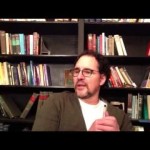We run our website the way we wished the whole internet worked: we provide high quality original content with no ads. We are funded solely by your direct support. Please consider supporting this project.
What is the significance of 2 Samuel 24:12–16?
The Lord gives David three options of how Israel will be judged. “Three things I offer you; choose one of them, and I will do it to you.”
This verse reveals how the Lord gives people genuine alternatives and responds to their choices. If God foreknew what David would choose, however, the purpose of the offer is inexplicable.
Category: Q&A
Tags: Open Theism, Q&A
Topics: Open Theism
Verse: 2 Samuel 24
Related Reading

How do you respond to John 6:64, 70–71?
Jesus told his disciples, “‘But among you there are some who do not believe.’ For Jesus knew from the first who were the ones that did not believe, and who was the one that would betray him” (vs. 64). Jesus continued, “‘Did I not choose you, the twelve? Yet one of you is a devil.’…

Why Can’t God? Reflections on the Oord Interview (podcast)
Greg reflects on his interview with Thomas Jay Oord. Episode 503 http://traffic.libsyn.com/askgregboyd/Episode_0503.mp3

Isn’t it true that God doesn’t know the future in the open view?
This is the single most common misconception people have about the open view. Open Theists and Classical Theists disagree about the nature of the future, not about how much God knows about it. Both sides grant that God knows everything. He is omniscient. He knows everything there is to know about all of reality, including…

How do you respond to Acts 2:23 and 4:28?
Question: Acts 2:23 and 4:28 tell us that wicked people crucified Jesus just as God predestined them to do. If this wicked act could be predestined, why couldn’t every other wicked act be predestined? Doesn’t this refute your theory that human acts can’t be free if they are either predestined or foreknown? Answer: In Acts…

The Rorschach Test
The choices we make will either increase or decrease our ability to recognize light when we see it. As we choose goodness, we increase our capacity for goodness. What do you see when you read the Bible or look at God or interact with others? Everything is a Rorschach test to some extent, revealing the light…

Dealing With Objections to Open Theism, Part II
There are four major objections to Open Theism. In this post, we are dealing with the third and fourth. (See yesterday’s post to read about the first two.) Objection #3: God cannot foreknow only some of the future. It is often argued that for God to be certain of anything about the future, he must be…
